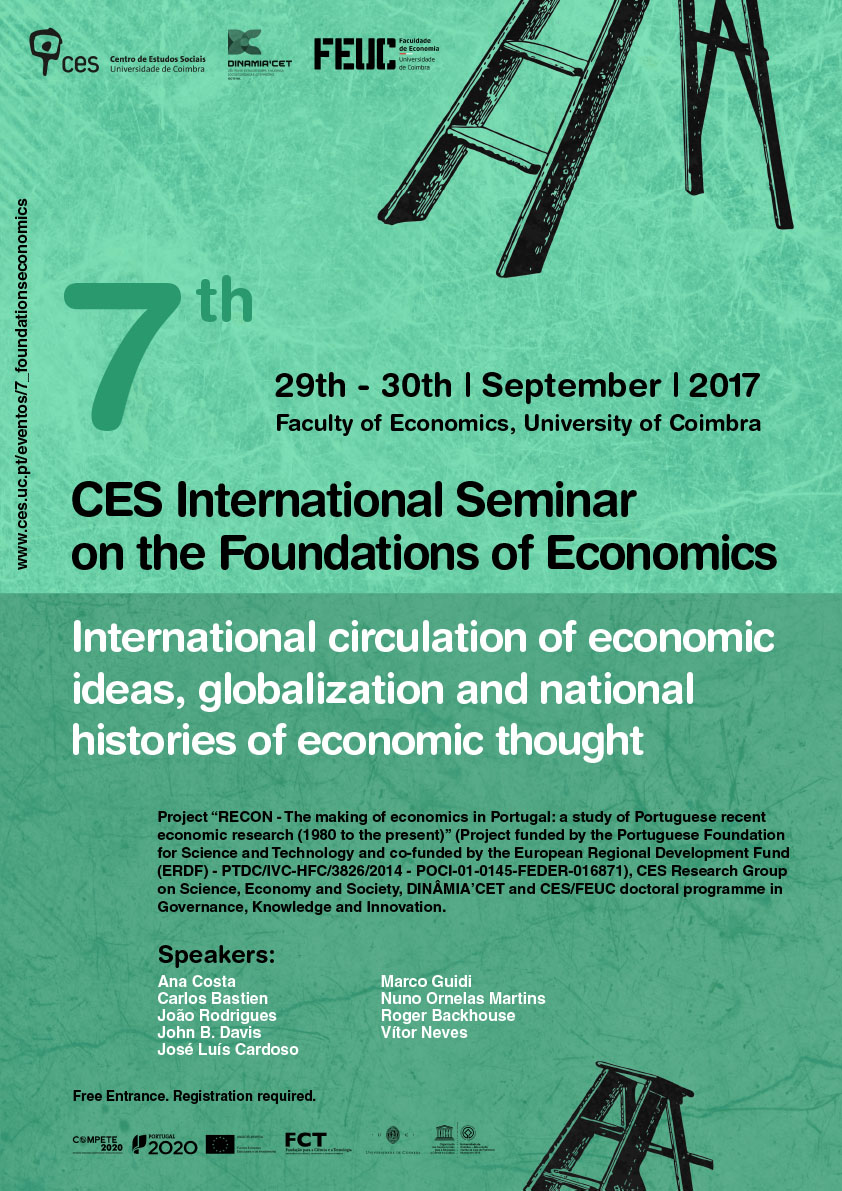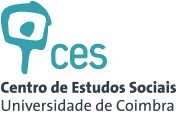7th CES International Seminar on the Foundations of Economics
International circulation of economic ideas, globalization and national histories of economic thought
29 e 30 de setembro de 2017
FEUC (Coimbra)
Abstract
The making of economics in the intellectual peripheries, and in particular the processes of transmission, assimilation and appropriation of ideas and practices originated in other spaces, are an important part of how economics as a science develops at a global scale. However, in spite of its relevance, knowledge of these processes is still relatively incipient. History of economics textbooks are, in general, histories of the contributions considered to have been decisive in the formation of economics as a scientific discipline, i.e. they are largely histories of the scientific contributions to knowledge at the center of the economics profession.
We believe that the history of economics in the intellectual peripheries is important, not only from a national point of view, but as an input for the historiography of economics in general, namely for a better knowledge of the processes of internationalization of economics and to check how globalization is having an impact on the national production of economic ideas. Place, travel, institutions, networks, power, identity, conversations and assimilation/appropriation of ideas and practices are fundamental keywords here.
By bringing together a group of international experts to discuss this topic we intend to contribute to decenter the analysis and highlight relevant aspects and features of the production of dominant economic knowledge at multiple scales.
We have in mind, in particular, issues such as:
– Why and how should we do research on the making of economics in the intellectual peripheries?
– What factors do, in general, affect how ideas circulate?
– Why are some foreign influences accepted (to varying degrees) and others rejected?
– Under what circumstances is the original content of imported theories modified or retained?
– How do “internal” and “external” factors condition (promoting, prohibiting or hindering) the international flow of economic ideas?
– How is globalization affecting the economics profession? Is there a national/global tension in economics?
– What is the influence of economic ideas circulating at a global level on national public policy?
Speakers:
Roger Backhouse, Carlos Bastien, José Luís Cardoso, Ana Costa, John B. Davis, Marco Guidi, Nuno Martins, Vítor Neves, João Rodrigues
Organizing Committee:
Vítor Neves, Ana Costa, João Rodrigues
(CES and DInÂMIA'CET)
FREE ENTRANCE. REGISTRATION REQUIRED
With thesupport of the Portuguese Foundation for Science and Technology and the European Fund for Regional Development (FEDER)
-‐ PTDC/IVC-‐HFC/3826/2014 -‐ POCI-‐01-‐0145-‐FEDER-‐ 016871)



